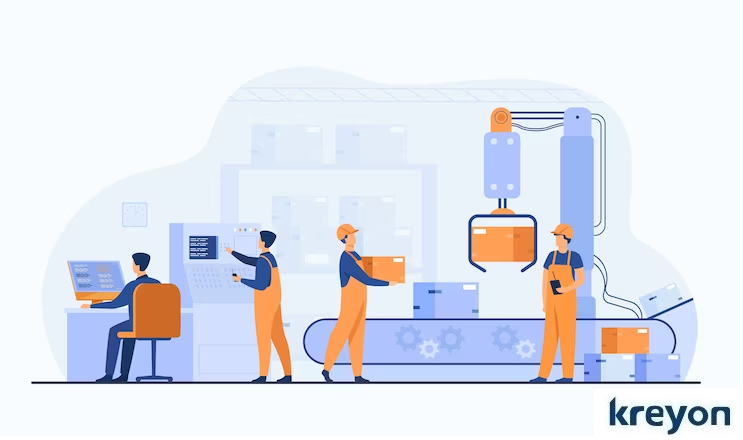In an era defined by rapid technological advancements, the integration of AI (Artificial Intelligence) is rapidly transforming the landscape of project management. A particularly intriguing development in this realm is the rise of Autonomous AI Agents. These intelligent entities are redefining the way we manage tasks, collaborate on projects, and streamline project management processes. In this blog, we'll delve into the concept of Autonomous AI Agents and their profound impact on Task Management with AI and project collaboration within the realm of project management.
.png)
Understanding Autonomous AI Agents
What Are Autonomous AI Agents?
Autonomous AI Agents are self-sufficient, AI-driven entities capable of making decisions, taking actions, and adapting to a variety of scenarios independently. In the context of project management, these agents play a pivotal role in optimizing task management, team collaboration, and project execution.
AI in Project Management
Empowering Decision-Making and Efficiency
AI technology has opened new avenues in project management, providing invaluable tools and insights for enhancing team collaboration:
1. Enhanced Decision-Making and Problem-Solving
Autonomous AI Agents have the capability to make informed decisions and solve complex problems without human intervention. They can process extensive datasets, identify patterns, and offer suggestions to project managers, greatly contributing to effective decision-making.
2. Self-Learning and Adaptability
These AI agents are not static; they possess self-learning abilities. They can analyze their own performance and adapt to changing project environments, ensuring that they remain efficient and effective throughout the project's lifecycle.
3. Efficient Resource Allocation and Time Management
Autonomous AI Agents excel in optimizing resource allocation, enabling project managers to make the most of their available resources and time. This can significantly reduce project costs and timelines.
Impact on Task Management
Automating and Optimizing Routine Tasks
Autonomous AI Agents are redefining the way we manage tasks and streamline project workflows:
1. Task Allocation and Progress Monitoring
These agents can intelligently allocate tasks to team members based on their individual strengths and workloads. They also monitor task progress in real-time, offering valuable insights to keep everyone informed.
2. Efficient Workflow Automation
Routine and repetitive tasks that once required human intervention can now be automated. This reduces the chances of errors and enhances efficiency.
3. Time and Resource Optimization
Autonomous AI Agents can identify areas where resources are underutilized or overburdened and suggest adjustments for optimized resource allocation.

Impact on Project Collaboration
Facilitating Seamless Team Collaboration
Team collaboration is at the core of successful project management, and Autonomous AI Agents can enhance it in various ways:
1. Improved Communication
AI tools, including chatbots and virtual assistants, can provide instant responses to queries, ensuring that team members remain connected. These agents also facilitate communication by offering instant translation services and accommodating multilingual teams.
2. Simplified Document Management
Intelligent Workflow Automation includes document management. AI-driven indexing and search capabilities make it easier for teams to access and collaborate on shared documents, simplifying document retrieval.
3. Collaborative Decision-Making
AI can serve as a collaborative tool, offering the data and insights needed for informed discussions and consensus-building. This contributes to the overall effectiveness of the project team.
Challenges and Considerations
While the advent of Autonomous AI Agents in project management offers significant advantages, there are some potential challenges to address:
- Data Privacy and Security: The use of AI in managing project data requires robust security measures to protect sensitive information.
- Training and Adoption: Team members may need training to effectively utilize AI tools. Ensuring a smooth adoption process is crucial.
- Integration: AI systems should integrate seamlessly with existing project management tools and processes to avoid disruptions.
Conclusion
The emergence of Autonomous AI Agents in project management is redefining how tasks are managed, projects are executed, and teams collaborate. Their ability to make decisions, automate routine tasks, and adapt to changing project dynamics is a game-changer in the field. As AI technology continues to advance, the role of Autonomous AI Agents is poised to become even more critical in achieving project goals efficiently and effectively. The future of project management is undoubtedly intertwined with these intelligent agents, offering exciting possibilities for businesses and teams aiming to excel in project execution and collaboration.